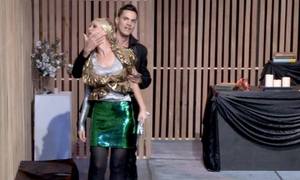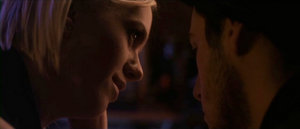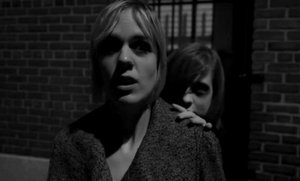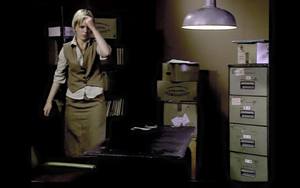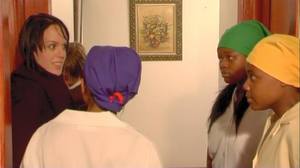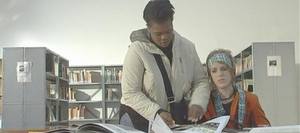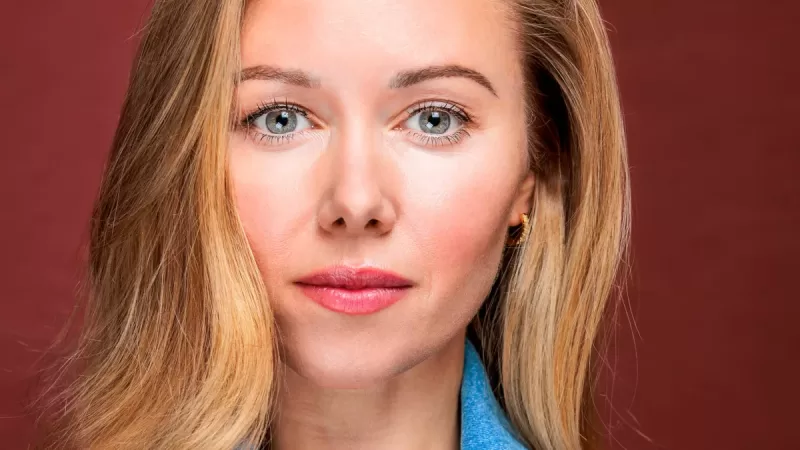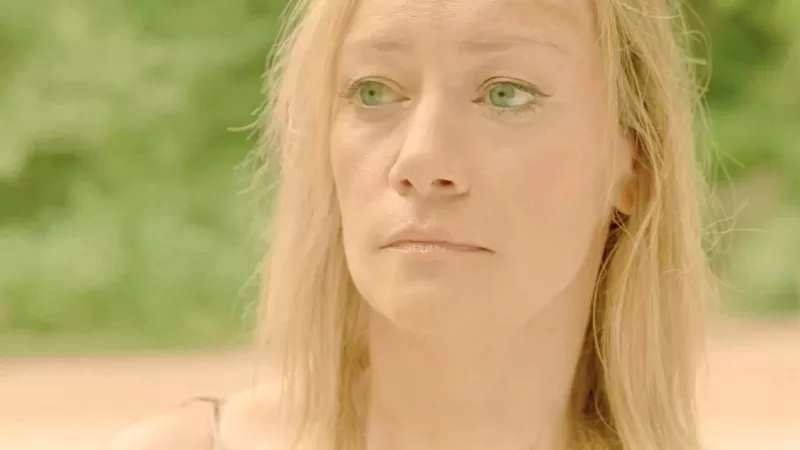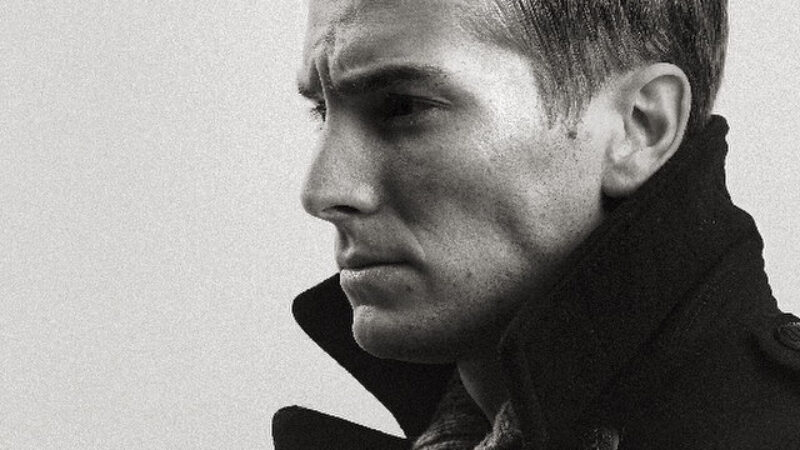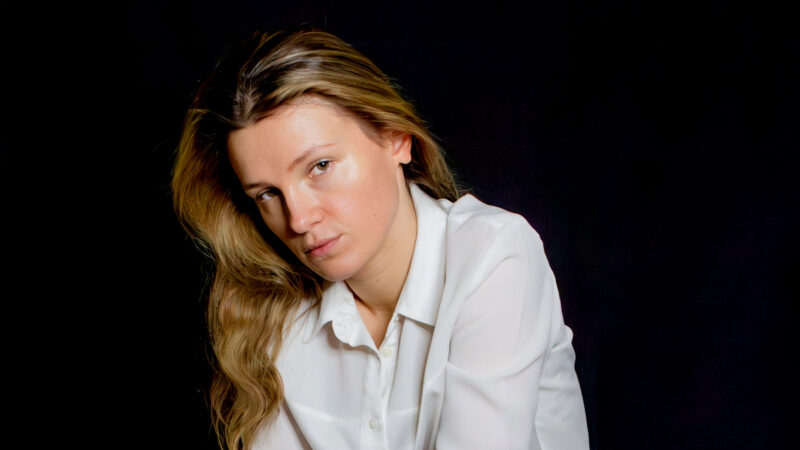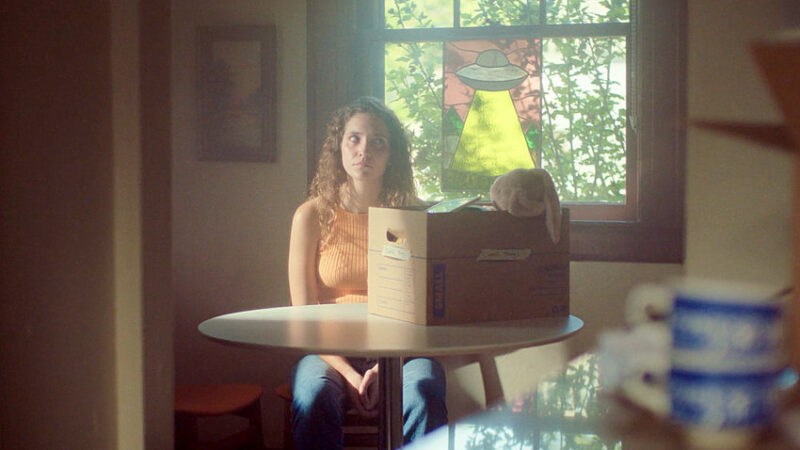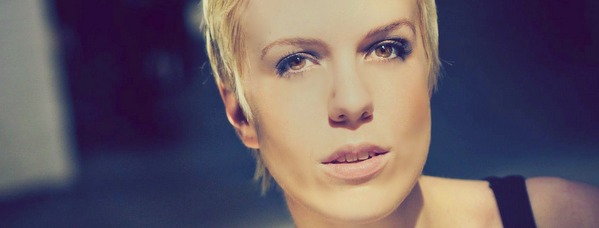
Hi I am Mieke Stapelberg. I still remember everything about that Sunday. I remember where we were sitting; the “slushie” I had – it was a lime one. I remember how cold the cinema felt. It was especially cold when the movie ended, perhaps because I was left with a longing for more. For three hours I was allowed to escape my own reality, which at the time appeared to be very unexciting and consisted primarily of school and extramural activities linked to school. I didn’t know anything about filmmaking at the time. I didn’t know what an actor’s job entailed or how much work really went into acting. All I knew was that it was magical. That Sunday was the day I told my parents that I wanted to be an actor. I was 11 years old. I am a firm believer that acting finds you. You don’t actively go out looking for it. That day acting found me. At the time my parents didn’t make anything of it. In their minds, tomorrow I was probably going to want to be a scientist. In my dreams, tomorrow I will be the next Rose DeWitt Bukator and Leonardo Di Caprio will be my husband! Aah, the joy of celebrity crushes.
29 years and still friendship strong #friends #love #unamamutchicateetaaaaa the_swieg #koreatown #nyc… https://t.co/aSVxzWV2U1
— Mieke Stapelberg (@Mieke_Marissa) August 4, 2015
Throughout high school Mieke Stapelberg was in many professional productions and with the help of my very supportive parents, I was allowed to audition for The British American Drama Academy in London. It was here, where I first got a taste of how difficult the road ahead was going to be. It was a tough course for a sixteen year old, and I often found myself crying over the phone to my mom. She promised me that if I completed the course, I would never have to get back on a stage ever again. I completed it and it gave me my first real sense of accomplishment.
Mieke Stapelberg comes from a place in South Africa where most people see being an actor as “just average.” You don’t really make much of a living and it is quite a difficult industry to break into which is why you see so many of the same actors over and over again. Unless you are one of the select few, such as Charlize Theron, well then you are awesome. Just don’t dare take a chance to do what she has done, because you’ll quickly be slapped on the wrist once and labeled a traitor for not wanting to struggle as an artist in your own country.
One thing my parents taught me is to never settle for second best and who is any person to tell me that I should? I was slowly, but surely heading to America! After completing my Drama Degree in South Africa, however, I found myself en-route to someplace quite the opposite. It was a tumultuous time in the world. We were going through something called the recession and with my already packed bag for LA, my mom broke the news to me one dull, rainy Monday morning. I sobbed for hours as I realized that America had become very far out of my league. I didn’t want to stay in South Africa. If I couldn’t be an actor in America, I’d do something completely different somewhere else. And so I took a map, closed my eyes, swung my finger around a few times and picked a spot. It landed on Asia. Hmmm, never thought about Asia before. So, I Googled jobs in Asia. Up popped “teach English in Taiwan.” Within seconds I had an application form out.
For weeks I fought with Taiwan to accept my Drama Degree, but to no avail. One day on a break, I opened up Facebook to a message from an old friend who had studied theatre with me way back when. He asked me what I had been up to and after telling him about my disappointing few weeks looking for work in Taiwan, he referred me to a Canadian recruiter for South Korea. Life in Korea was stable. I had a secure income and I lived tax-free. I never worried about where my next paycheck would come from or whether I was going to be able to afford my gas bill. Those things were never issues to me over there. With Korea, came a new set of problems altogether, though – the unnerving feeling I had to deal with every sulky Sunday as I sat alone in my apartment and realized that I had abandoned my one true love of acting for an easier life. For the first time I felt really cheap.
It has taken me a very long time to get over that feeling, but I now consider Korea to be one of my biggest allies on my journey as an actor. The strange thing is though, that through whatever emotion I experienced over there, far away, I always found myself right back at the movies, staring at the faces of some of the world’s greatest actors – and somehow they just made everything okay again. Like the loneliness never happened; like I was not a million miles away from home in a foreign country with a language I couldn’t speak yet; like money was never even an issue. And then I cannot deny it. I am simply in love with acting, I am in love with film, I am in love with stories. And whether I like it or not, whether it makes my life tough or not, acting is what I’ve become, not only what I do. And so, my American journey began.
Did you study acting
I consider myself to have been an actor from the age of 11, but I actually only got on stage for the first time when I was 14. This occurred in Drama class in 6th Grade. I was petrified. I continued Drama all throughout High School and soon found myself in many professional kids theatre productions. At the age of 16 I decided to audition for the British American Drama Academy in London after finding out that my other future husband, Orlando Bloom, studied there.
The audition was held at the Juilliard School and I have such fond memories of how unaffected I was as a teenager. I had the world at my feet and all I cared about was that moment in that audition room. Failing never crossed my mind. That word didn’t exist in my vocabulary. At BADA I got to train with some of the best teachers and actors in London. I use the word train, because being an actor is essentially on par with being an athlete – it takes a lot of emotional and physical work in order to tell a story truthfully.
After High School, I graduated with a Bachelor of Arts Degree in Acting from The South African School Of Motion Picture Medium And Live Performance (a mouthful), but it was here where I fell in love with the camera and the camaraderie that goes with being on a set. I always longed to study in America, so naturally I found myself auditioning for The New York Conservatory For Dramatic Arts – I wanted to explore camera acting more. I wanted to learn from the best. Upon my return from South Korea, I was accepted and offered the Sanford Meisner Scholarship to attend.
What acting technique do you use
In South Africa we never really learned one specific technique. You sort of just went on gut instinct and had to figure it out as you went along. I knew by the time I graduated from film school in South Africa, that something was seriously missing in the technique department. I felt tired, almost wiped out after every film or production, because I had to work extra hard to get to that emotional place that actors who had a technique would normally get to in half the time.
I read books about acting and went along with what I had learned at BADA and from experience, but it was only once I started school at The New York Conservatory For Dramatic Arts that I felt like I could finally relax and enjoy the craft. I now had a basis from which to work and that was the Sanford Meisner technique. As time went on, I discovered other techniques, among them, sense memory. I never subscribed to only one. Many actors use various different kinds, some only use one, and to me, every technique offered something different and exciting. It all really depended on the film or director – every situation and script is different and therefore needed different techniques to get me there. What would work for one script, might not necessarily work for another.
What wrong impressions do actors hold about acting
Wow, there are so many! But if I had to choose, it would be that acting is NOT being somebody else. You can never be somebody other than yourself. It is also not pretending to be somebody else. If there is one thing that makes my skin boil, it is when somebody asks me “Oh, you’re an actor? You must be a great liar then?” Contrary to popular belief, no. Acting is about being very honest. A performance rooted in dishonesty and pretense is a bad performance. I love the quote by Meisner: “Acting is living truthfully under imaginary circumstances.” I like to remind myself of that before every project. It has become one of my personal mantras by which I live my life. I try to live my own truth, experience everything wholly and honestly so that I may use those experiences in my craft.
Do you take courses to improve your craft
Yes, I do. And I am also really excited to start training with Anthony Abeson in New York soon.
What acting books do you read
I love Uta Hagen’s books with my favorite being “A Challenge For The Actor”. She talks about learning to face yourself, to hide nothing from yourself and I just love her honesty. I read a lot on Meisner and Stanislavsky, too. I am making it a goal to read at least one new acting book a week. I also enjoy the more technical books such as Michael Shurtleff’s “Audition” – in which he teaches the twelve guideposts. A lot of these books I came in contact with at acting school and I still re-read them often. I also like to read books about the business side of acting, because I think that even though they touch on it at most acting schools, many actors never really learn how to run themselves as a business.
We don’t always know how to sell our product. We become so wrapped up in the craft, that we forget how equally important the business side of it is. Many of us learn through trial and error, but there are great showbiz books out there that have helped me a ton. My three favorites being, in no particular order: Brian O’Neill’s “Acting As A Business: Strategies For Success”; Paul Russell’s “Acting: Make It Your Business”; and “Acting Is Everything” by Judy Kerr. I sometimes freelance as an assistant for two well-known casting directors in NY and have learned a great deal from watching other actors and the choices they make. It is vitally important to always be observing.
How do you keep fit as an actor
Mentally: Meditation. I do 10 minutes of meditation first thing every single morning before I even attempt anything else. I am the type of person who needs that structure and stability in my life. With acting being such an inconsistent profession and because I am not always able to plan my days to the tee, I at least know for a fact that I will always have 10 quick minutes every morning in which to quiet my mind.
Physically: I do spinning if the day lets me and sometimes attempt yoga if I am feeling brave enough.
When you’re offered a role, what do you do next
I read the full script. I read that script a minimum of 4 times before I even think about my character. It is said that Anthony Hopkins reads a script at least 127 times. Weird number, but these are the kind of things you don’t learn at acting school. That is why it is so vital to read about actors, watch their movies, learn from the greats! What I love so much about being an actor, is that I can read an article about an actor such as Anthony Hopkins and learn something that would enhance my craft for the rest of my life. Acting training isn’t only subjected to going to school. One day I will get to 127.
How do you take a character in a script to a honest, believable and breathing person
I like to call the work that I do “layering”. It takes many layers before I feel comfortable to go up. It starts with reading the script many times, after which I like to do a solid timeline on my character to work out moments before and moments after. Then comes the background of the character. I believe that in order to make a character three dimensional and believable, that character has had to have had a life before this moment here and now. The background has to come from a place of honesty and realness. I can’t just make up any old story and expect it to work. The clues are in the script. A good writer always makes my job easier. I like to work the 12 guideposts over and over again. Those are: relationship; conflict; the moment before; humor; opposites; discoveries; communication and competition; importance; events; role playing; mystery and secrets. All of these to be found in the script. I try figure out these things and once I am done with the 12 guideposts, I do them again. And again. And again, because there will never be a final correct answer. You will always discover something new. Then I bring in costume – what does my character wear? And then finally music and journaling.
How do you stay fresh on set
That is always a difficult one, because sets can often times be very distracting. If there is a designated area for me to go to between lighting set-ups, that is where you will find me, usually not making chit-chat, but rather listening to music – something that goes with my state of mind at the time. Between separate cuts and re-takes, I like to think character thoughts. I like to think about the situation happening in the scene. I try not to think Mieke thoughts, which isn’t always possible, but with practice I am slowly but surely getting it right. I have discovered many a great thing about a scene during these re-takes sometimes-things that have amplified my performance. It takes a lot of concentration, but it is so rewarding when you discover something new when you haven’t bargained on it.
Describe a memorable character you played
Ellen Chandler; Dracula: Bloodlines – 2013 at the Gene Frankel Theatre in NYC. This was my theatre debut in NY. I had sleepless nights. Everybody that I worked with was absolutely magnificent and we had a wonderful cast and crew. Some of those actors are now some of my greatest friends. It was a difficult script and I guess because it was my first NY play, I had put a lot of outside pressure on myself to make the best of it. I took everything personally. We would go from being sold out one night to having one person in the audience the next. It was here that I learned that you never know who that one person might be, so make it the best you can make it, every single time. My nerves were shot for most of the production and because I wasn’t able to fully relax into the character, I was making acting choices based on fear rather than trusting that I had trained and that I deserved to be there. My performance became a false version rooted in the thought “how do I impress the audience?” I vowed after this to never act from that place of insecurity again. Sometimes these things are going to happen and it is in how you trust your ability as an artist that will make the difference. I remember emailing my acting coach at the time and telling her how incredibly difficult it was for me to make good character choices. Her reply is something I’ll never forget. She told me that I have no one to blame but myself. She said: “The writer has now left the script in your hands, and now it is your responsibility to make it work. Now get out there and do your damn job!’ (It was something along those lines at least, but this
was how I remembered it.)
Explain one creative choice you took on set
If you’ll allow me, I’d like to talk about a creative choice I made in an audition instead. I was called in to audition for The Americans on FX. I was supposed to come dressed as an ‘agent.’ Now, naturally if you haven’t yet seen the show or know anything about what era it is set in, you would think that the word agent could imply ‘sexy’, think almost Angelina Jolie in Mrs. & Mrs. Smith. But, after doing my research on the time in which The Americans plays off, I quickly realized that the word agent actually meant “undercover spy.” I walked in and was so far off looks-wise from the other actors in the room, that I thought “either I have this very right, or very, very wrong. But, either way, I am here and I am going to trust that I have it right.” The character required a South African accent, and so armed with the era, accent and occupation of the character, I was able to do a search of the history of that time and therefore able to accurately portray the character in the audition, which then led to me booking my first tv role, becoming SAG-Eligible and being called in for better auditions – I am very proud to say that I was recently called-back for NBC’s Diversity Program.
What do you want most from a director
I like working with “the actor’s director” – the kind of guy/gal who likes to delve deep into the performance and who sometimes cares a little more about that instead of the visuals. Obviously it is important that a director cares about the whole package of the film, but I have worked with directors who were only concerned with what the film looked like and rarely even directed me – it was less fun. I once worked with a director who, even at the end of working together solidly for three days, still didn’t know my name. In this profession it is a given that you will work with both kinds, and that is why technique and confidence in your work and ability as an actor is so important – some directors are not going to toot your horn, and therefore you should be able to do it for yourself (confidently, not arrogantly.)
What actor do you long to work with
Leonardo Dicaprio.
Why
He is the reason I am an actor
What advice would you give to actors
To never second guess yourself. Trust me, every single time I have second guessed myself, I took 2 steps back. It is not worth it. Also, luck is when preparation meets opportunity. Always be prepared. Don’t procrastinate and say “I’ll lose those 5 pounds starting tomorrow.” Do it now! Read a lot and write your own projects. Oh, and also… be polite. This is a small industry. Word gets around very quickly.
Briefly write about your career
Classically and on-camera trained, I have played roles from Shakespeare to Tennessee Williams, working in major South African repertory theaters, commercials, as well as voiceovers.
In South Africa, I played Lady Macbeth in William Shakespeare’s “Macbeth”, Blanche Du Bois in Tennessee William’s’ “A Streetcar Named Desire” and Anne in “Tell It Like It is” – an adaptation of “The Vagina Monologues” which I co-wrote and which won best Stage Play at The South African School Of Motion Picture Medium And Live Performance (AFDA) in Johannesburg, South Africa.
While attending The British American Drama Academy as a teenager, I had the pleasure of training with teachers Nick Hutchison (The Royal Shakespeare Company, “About A Boy”, “Miss Potter”), Catherine Livesey (“Inspector Morse”, “Jeeves and Wooster”), and Norman Ayrton (Juilliard Faculty and director of “Lakme” at The Sydney Opera House).
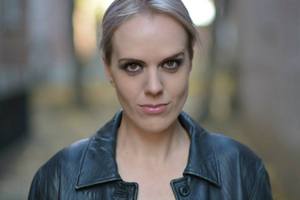 After High School, I graduated with a Bachelor of Arts Degree in Acting from The South African School of Motion Picture Medium and Live Performance. While at AFDA I had the privilege of learning from one of South Africa’s finest actors, Conrad Kemp (“Winnie Mandela” and “Zulu”).
After High School, I graduated with a Bachelor of Arts Degree in Acting from The South African School of Motion Picture Medium and Live Performance. While at AFDA I had the privilege of learning from one of South Africa’s finest actors, Conrad Kemp (“Winnie Mandela” and “Zulu”).
The New York Conservatory For Dramatic Arts (formerly known as The School For Film and Television), offered me the Sanford Meisner Scholarship, which is based upon talent demonstrated at the audition. I completed the two year professional program cum laude.
At NYCDA I had the privilege of training with teachers Carol Kastendieck (Director of “When the World Was Green” at The Michael Chekhov Theatre Company in NYC), Maury Ginsberg (“Law & Order”, “The Good Wife”, “House of Cards”, “Friends”), and Jay Goldenberg (“The Fresh Prince of Bel-Air” and “Switch”).
I appeared in a National commercial in Poland for “Wrigley’s Winterfresh Chewing Gum” and in South Africa I appeared in a National commercial for “Goldwagen” produced by Red Pepper Pictures and Brendan Jack (“Footskating 101” and “Crazy Monkey Presents Straight Outta Benoni”). The “Goldwagen” commercial often aired during the Rugby, one of South Africa’s most popular television slots viewed by millions of South Africans.
I was one of the voices for “First National Bank” in South Africa, working alongside well-known South African actress Yvonne Van Den Bergh (“Villa Rosa”, “7de Laan” “Glitterati”). I was a presenter (through Kagiso Media) for The Learning Channel – a channel for DSTV South Africa.
“Exodus,” a thesis short film in which I played the lead, screened to a sold out audience at the highly acclaimed Cinema Nouveau in Sandton, Johannesburg. Exodus also screened on well known television channel Mzansi Magic for MNET (which is accessible to nearly five million South Africans). The South African film “Happiness” in which I played a supporting role, also screened on Mzansi Magic.
In South Korea, I co-wrote and played to sold-out audiences in two productions, “Cannibal Solutions” and “Introspector”. I played the lead role in a NY short film called “Love” which won a merit award at the La Jolla film festival in California. I made my New York theatre debut in “Dracula” not too long ago, in which I portrayed the role of actress Ellen Chandler.
I recently made my first television appearance in “The Americans” on FX. I am proud to be signed with Herb Rothman at American Talent Management. Independent production company “Bourbon Films” starts production of the indie feature film “Etude Dystophia” next summer, with me as Sophia Carver.
I am currently working on writing and directing my first NY play, dealing with among other things the issue of what defines being a woman in today’s day and age where we are constantly fighting for equality.
Website | IMDB | Facebook | Twitter | YouTube | SoundCloud | LinkedIn |

